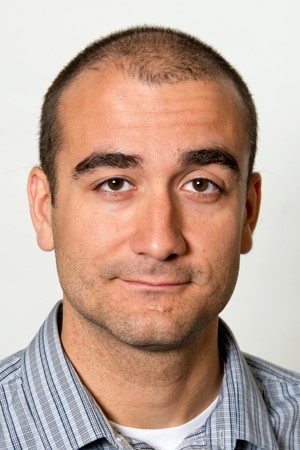Weather Alert: Following the winter storm, all Temple Health hospitals, campuses and clinical locations remain open, though some appointments or services may be adjusted. Patients will be contacted directly if their visit is affected. Please check TempleHealth.org or FoxChase.org for updates and monitor myTempleHealth for changes to scheduled appointments.
Breadcrumb
- Home
- Fox Chase Cancer Center News
- Researchers Identify Musashi-2 Protein as Potential Biomarker and Targeted Therapy Enhancer for Non-Small Cell Lung Cancer
Researchers Identify Musashi-2 Protein as Potential Biomarker and Targeted Therapy Enhancer for Non-Small Cell Lung Cancer

PHILADELPHIA (June 21, 2021)—Researchers at Fox Chase Cancer Center have identified Musashi-2 (MSI2) protein as having the potential to both identify targeted therapies for certain patients with non-small cell lung cancer (NSCLC) and to serve as a target for the development of new therapies.
NSCLC is the leading cause of cancer-related deaths globally, and its incidence rate is second only to breast cancer in women and prostate cancer in men.
In earlier work, Alexander Deneka, MD, PhD, a senior research associate in the lab of Erica Golemis, PhD, co-leader of the Molecular Therapeutics Research Program and Deputy Chief Science Officer, demonstrated that in NSCLC tumors with elevated levels of MSI2, the protein drives tumor metastasis.
“In the subsequent work we tried to dissect the mechanism underlying these observations and support these findings with additional patient cohorts,” said Deneka.

In one study, “Musashi 2 (MSI2) Expression as an Independent Prognostic Biomarker in Non-Small Cell Lung Cancer (NSCLC),” published in Journal of Thoracic Disease, the researchers looked at tumor samples from patients with varying stages of NSCLC. They found that elevated levels of the MSI2 protein correlated with poor patient survival; this correlation was especially strong for patients with stage IV lung cancer. Based on this finding, the researchers nominated MSI2 as a prognostic biomarker.
In the second study, “Musashi-2 (MSI2) Regulates Epidermal Growth Factor Receptor (EGFR) Expression and Response to EGFR Inhibitors in EGFR-Mutated Non-Small Cell Lung Cancer (NSCLC),” published in Oncogenesis, Deneka and his coauthors investigated how MSI2 could be manipulated to improve the effectiveness of EGFR-targeted therapy for NSCLC.
Targeted therapies are cancer treatments that are able to more effectively and precisely attack tumor cells based on those tumors’ particular characteristics. In some patients with NSCLC, drugs that target proteins on the surface of cancer cells called epidermal growth factor receptors (EGFRs) have considerable effectiveness.
In patients whose tumors have mutations in the EGFR gene, the EGFR protein becomes hypereactive, producing signals that cause cells to grow too much, invade surrounding tissue, and eventually metastasize. Deneka and his team first discovered that MSI2 plays a sustaining role in pathological signaling by mutated EGFR. They then investigated whether silencing the activity of MSI2 would affect the efficacy of EGFR-targeted therapies.
Comparing NSCLC cell lines with or without EGFR mutations, the researchers used a technique called RNA interference to silence the levels of MSI2. After they showed that RNA interference effectively decreased levels of MSI2, they treated those cell lines with EGFR-targeted drugs in vitro and in vivo using mice inoculated with the cells that developed tumors.
In both instances, they found that the cells were 20% to 50% more sensitive to EGFR-targeted drugs and that tumor volume decreased up to 40% more when MSI2 was silenced than when it was not.
According to Deneka, using MSI2 as an additional biomarker will help to identify which patients with EGFR-mutated NSCLC might respond better to EGFR-targeting therapy. “In the future, if MSI2-targeted therapies are developed, the measurement of MSI2 levels can be beneficial because detection of this marker in patients can probably nominate them to receive this specific targeted therapy as well.”
Fox Chase Cancer Center (Fox Chase), which includes the Institute for Cancer Research and the American Oncologic Hospital and is a part of Temple Health, is one of the leading comprehensive cancer centers in the United States. Founded in 1904 in Philadelphia as one of the nation’s first cancer hospitals, Fox Chase was also among the first institutions to be designated a National Cancer Institute Comprehensive Cancer Center in 1974. Fox Chase is also one of just 10 members of the Alliance of Dedicated Cancer Centers. Fox Chase researchers have won the highest awards in their fields, including two Nobel Prizes. Fox Chase physicians are also routinely recognized in national rankings, and the Center’s nursing program has received the Magnet recognition for excellence six consecutive times. Today, Fox Chase conducts a broad array of nationally competitive basic, translational, and clinical research, with special programs in cancer prevention, detection, survivorship, and community outreach. It is the policy of Fox Chase Cancer Center that there shall be no exclusion from, or participation in, and no one denied the benefits of, the delivery of quality medical care on the basis of race, ethnicity, religion, sexual orientation, gender, gender identity/expression, disability, age, ancestry, color, national origin, physical ability, level of education, or source of payment.
For more information, call 888-369-2427